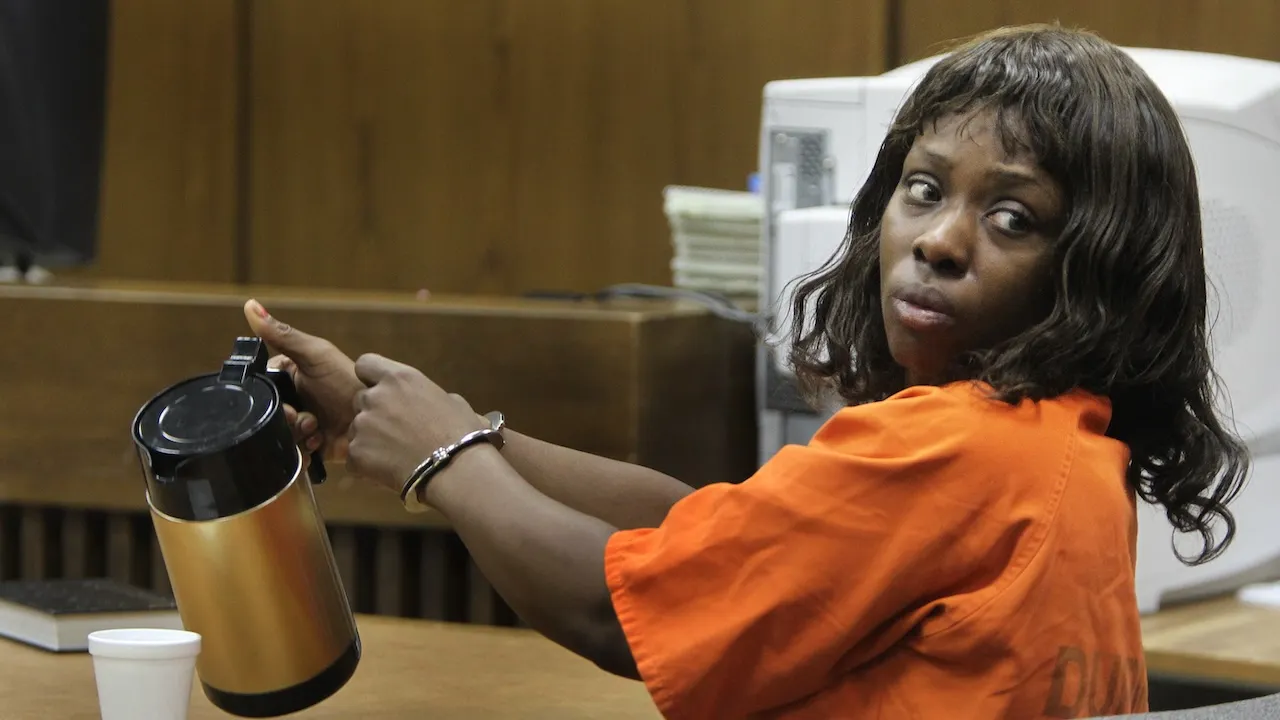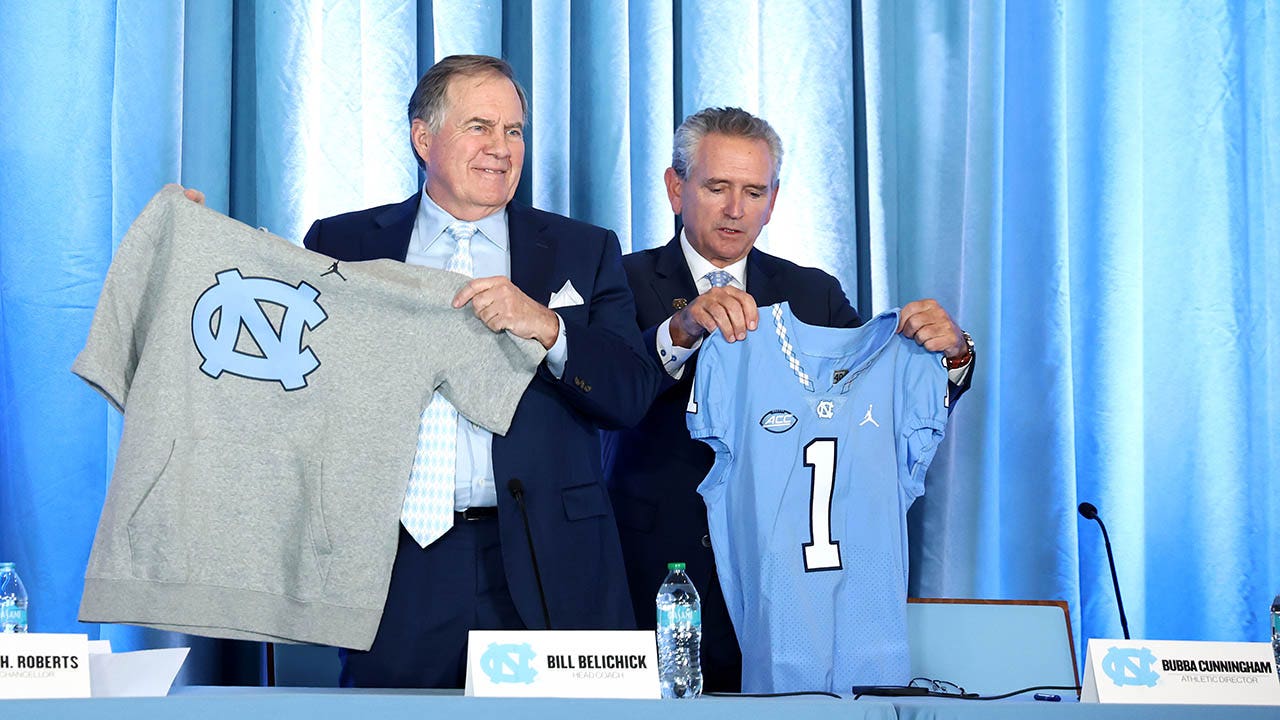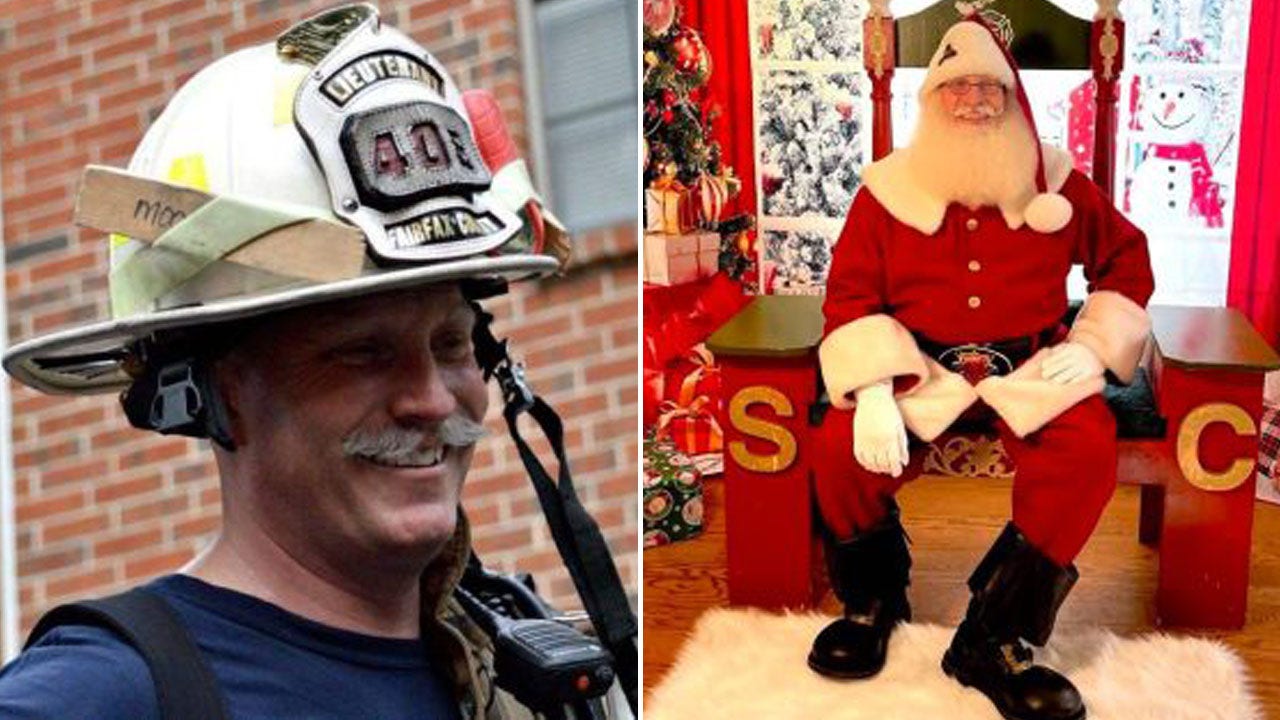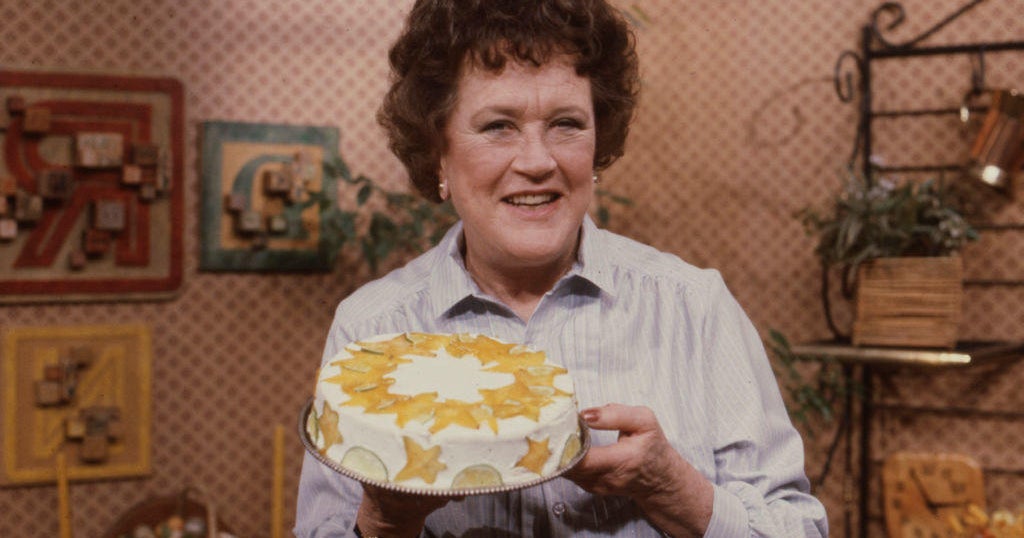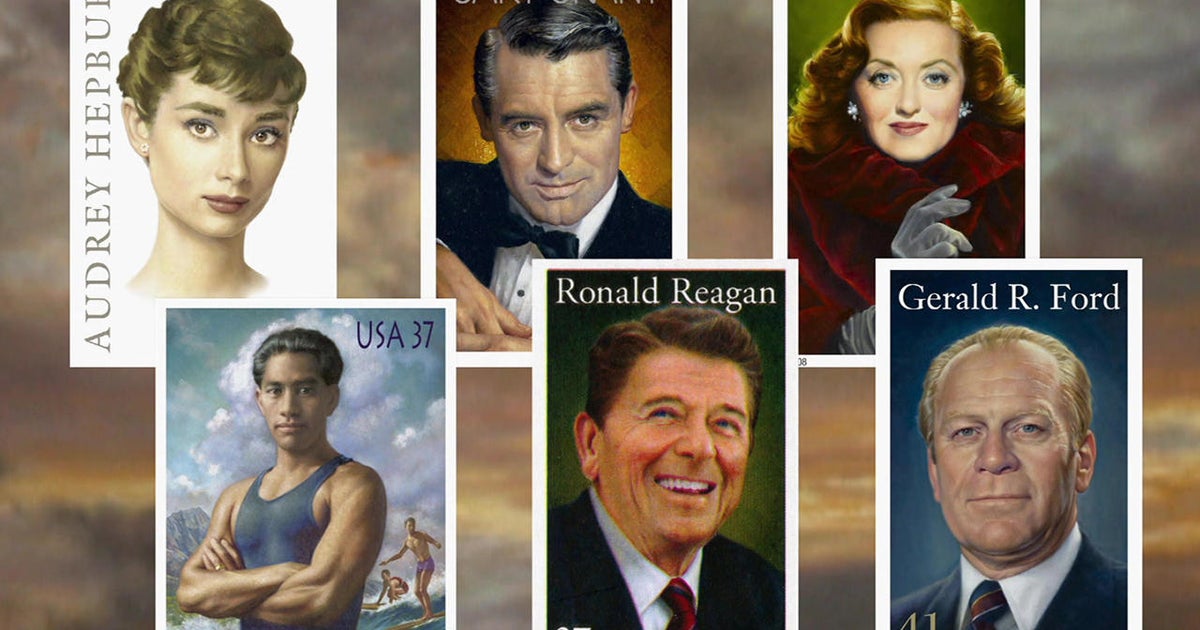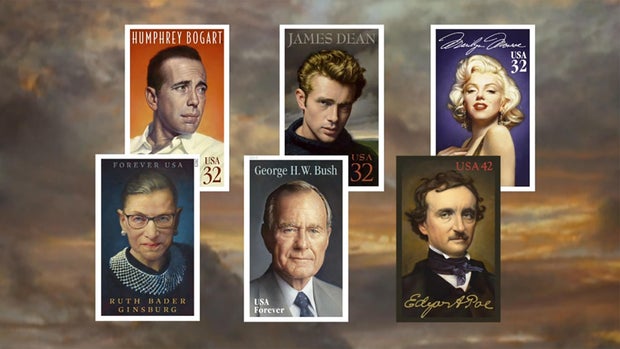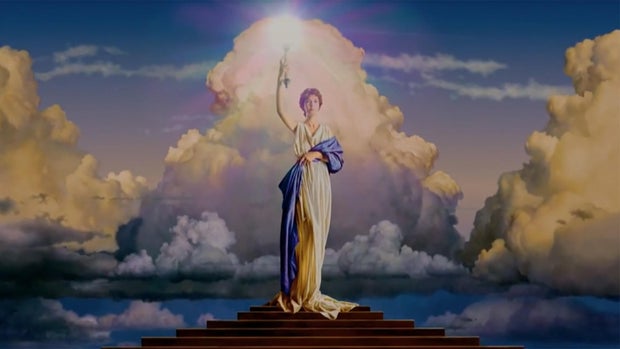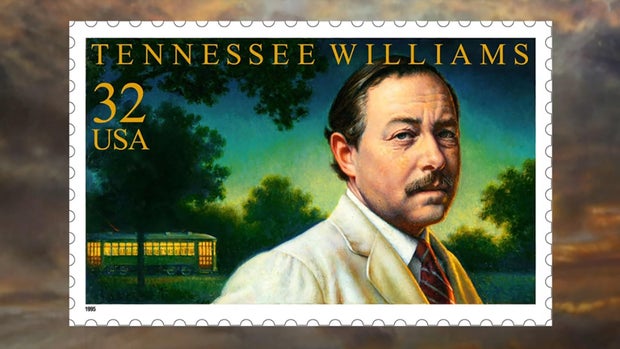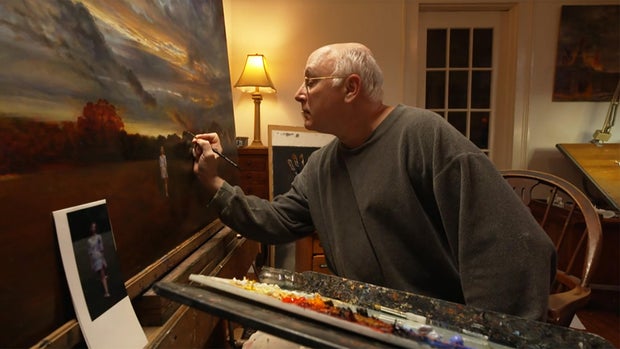Inside his home studio in New Orleans, artist Michael Deas can spend months working on a single oil painting. But collectors need only spend a few cents to own a print of his most popular works. His portraits sell for pennies. Deas has created 25 stamps for the U.S. Postal Service.
“I have a friend who likes to call me the most famous artist you’ve never heard of,” he said.
He’s not allowed to sign the paintings used on stamps, which means he may not be a household name. But his subjects are certainly well-known – he’s responsible for an impressive gallery of American icons.
CBS News
Deas said, “When you do a stamp, you’re supposed to represent that person at the high point of their life.”
He doesn’t choose who’s getting the stamp treatment (a citizen’s committee makes recommendations to the Postmaster General, then an art director assigns the work). Over nearly three decades, Deas has been asked to paint everyone from U.S. Presidents (Gerald Ford, George H.W. Bush) to Hollywood stars (James Dean, Marilyn Monroe, Audrey Hepburn, Humphrey Bogart).
In the early 1990s, Deas had his own brush with Hollywood, when Columbia Pictures commissioned him to redesign its logo.
Columbia Pictures
Asked what it’s like to see his work on the screen, he laughed, “It’s a kick! It’s fun to see.”
Despite persistent rumors to the contrary, the Columbia “torch lady” is NOT Annette Bening. Deas used New Orleans graphic artist Jenny Joseph to model for his oil painting. “I think I would have remembered if Annette Bening had posed for me!” he said.
While Deas typically works off photographs, occasionally he’s had to do a bit of posing himself. “I had to paint a portrait of Benjamin Franklin for the cover of Time magazine,” he said, “and I was having trouble working from the existing portraits of him. So, I ultimately ended up using myself as a model because, unfortunately, I share the same hairline as Benjamin Franklin.”
CBS News
Deas has painted six Time covers, primarily presidents. He did magician David Blaine’s autobiography. But he keeps coming back to stamps.
Is stamp work lucrative? “No! Definitely not,” he replied. “That’s why I do it. It feels like an honor I’ve been asked to do something. I consider it a privilege.”
The first stamp Deas ever painted was of author and fellow New Orleans resident Tennessee Williams. In addition to depicting the man himself, Deas wanted to pay tribute to Williams’ most famous work: “If you look at that stamp very closely in the background there’s a streetcar. And if you look at it with a magnifying glass, there’s a single individual sitting on the streetcar. And that’s meant to represent Blanche Dubois, who’s the heroine of ‘Streetcar Named Desire.'”
CBS News
Deas’ most recent stamp – a portrait of Supreme Court Justice Ruth Bader Ginsburg – was released last fall. Current regulations stipulate that an individual must be dead for at least three years before they can be honored with a stamp.
Fans of Marilyn Monroe waited decades for her to finally get the stamp treatment in 1995. Deas says his portrait of her remains the best-selling stamp he’s ever created.
These days, Deas is devoting more time to personal work, focusing more on an overall scene than on a specific person. “I’ve spent 40 years painting a lot of images that other people wanted,” he said. “And now it’s time to paint images for myself.”
CBS News
But he’s still accepting stamp commissions. He’s currently working on three top-secret stamps that will come out in 2026. For Deas, the stamps are a way to go beyond the gallery, to get miniature works of art into as many hands as possible.
Asked if he thinks about the journey his paintings take, Deas said, “Often, yes. I try to make every stamp as beautiful as I can. Because I think a good stamp, you will notice. It is not strictly a functional item if it’s done well. It’s a little beautiful note on the outside of an envelope. And it can really sort of brighten the thing and become something beautiful. I’m thrilled to do them.”
For more info:
Story produced by Jay Kernis. Editor: Chad Cardin.
See also:












